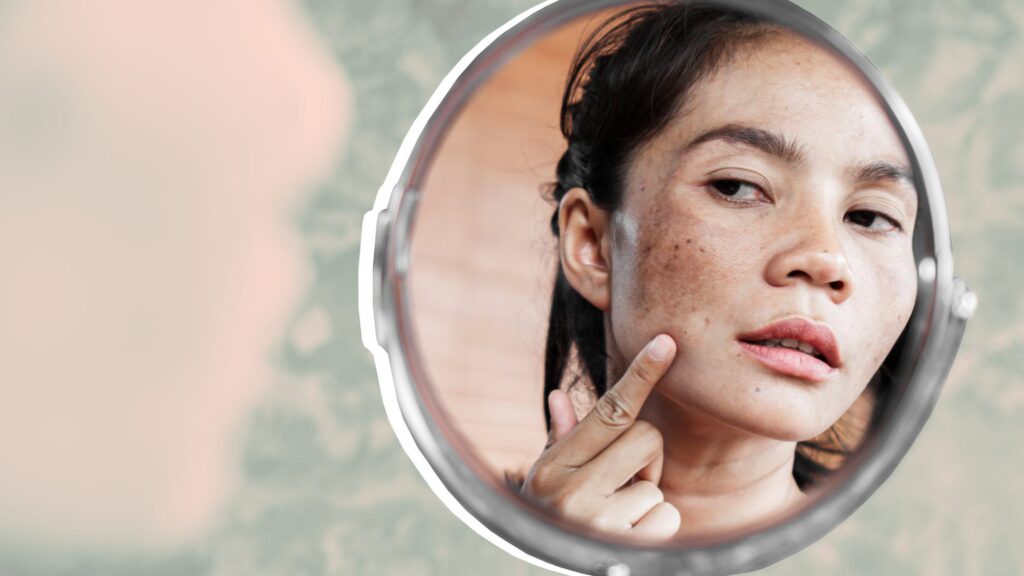Dark spots on the face, also known as hyperpigmentation, can be a source of frustration for many individuals. Whether they appear as freckles, sunspots, or post-inflammatory marks, their presence can impact one’s self-esteem and confidence. Understanding the causes behind these pesky spots is crucial for effective treatment and prevention.
Causes of Dark Spots on Face:
Dark spots and itching on your face could also be signs of a number of different facial diseases, such as:
Overproduction of melanin:
The colour of the face is attributed to a protein called melanin. Due to an error in melanin synthesis, this protein causes the face to produce too much melanin, which causes dark spots and patches to appear.
Eczema:
Eczema is a skin disorder that causes inflammation, itching, and the formation of patches on the face.

Fungal infection:
Another common cause of itching and black spots on the face is a fungus infection.
Prolonged exposure to intense sunlight:
Prolonged exposure to sunshine can develop dark spots and accelerate the aging process of the face.
Junk Food:
Consuming junk food on a regular basis might cause partial liver function issues in the body, which can cause dark patches and a change in facial colour.
Smoking and excessive coffee consumption:
These habits might exacerbate dark spots.
Physical or mental stress:
Both types of stress can result in black patches on the face.
Ways to Remove Dark Spots on Face:
Clean the face with face wash:
Start your skincare routine by thoroughly cleansing your face with a gentle face wash. This helps remove dirt, excess oil, and impurities, creating a clean canvas for further treatment.

Use toner:
After cleansing, apply a toner to balance the skin’s pH levels and tighten pores. Look for toners containing ingredients like witch hazel or rose water, which can help fade spots and brighten the complexion.
Apply face serum:
Incorporate a face serum enriched with ingredients like vitamin C, niacinamide, or alpha hydroxy acids (AHAs) into your skincare regimen. These serums can target dark spots, promote cell turnover, and improve overall skin texture and tone.
Apply dark spot cream:
Invest in a dark spot cream specifically formulated to target hyperpigmentation. Look for ingredients such as hydroquinone, kojic acid, or licorice extract, which can help lighten dark spots and even out skin tone over time.

Use aloe vera moisturizer:
Hydrate your skin with a lightweight moisturizer containing aloe vera. Aloe vera not only moisturizes the skin but also has soothing and healing properties that can help fade spots and reduce inflammation.
Sun protection:
Protect your skin from further damage by wearing sunscreen daily. Particularly if you’re spending time outside, use a broad-spectrum sunscreen with SPF 30 or greater and reapply it every two hours.
Conclusion:
Taking good care of the face is crucial to removing dark spots. Thus, in order to get rid of black spots, you should utilize treatments and skin care regimens. Speak with a facial specialist for guidance that is appropriate for you.

